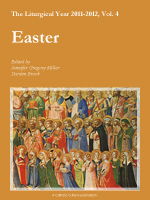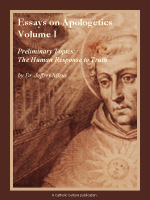From CatholicCulture.org:
Arriving in Cuba, Pope issues clear call for change
Papal visit highlights debate on Church role in Cuba
Arriving in Cuba, Pope issues clear call for change
 March 26, 2012
March 26, 2012
Pope Benedict XVI offered a prescription for change in Cuba as he arrived on Monday afternoon, March 26, to begin a 3-day visit there.
The Pope—who had said last week that Marxism has failed in Cuba—said that he was convinced “that Cuba, at this moment of particular importance in its history, is already looking to the future.” He said the future of the island nation should be shaped by “the fine patrimony of spiritual and moral values which fashioned the nation’s true identity, and he mentioned Cuban heroes like José Marti and Felix Varela. Conspicuously missing from his list of great Cuban leaders was Fidel Castro.
As he arrived in Cuba, Pope Benedict recalled the historic visit by Pope John Paul II in 1998, saying that it “left an indelible mark on the soul of all Cubans.” That papal visit was “like a gentle breath of fresh air which gave new strength to the Church in Cuba,” he said.
Gently alluding to the contentious issue of Church-state relations in Cuba, the Pope said that his predecessor’s visit ushered in “a new phase in the relationship between Church and State,” and welcomed a “new spirit of cooperation and trust,” while noting that there were many areas still in need of improvement. In greeting the Pontiff, Raul Castro had asserted that the government welcomes the activity of the Catholic Church; the Pope’s words seemed design to convey that the Church would continue to press for greater freedom.
Pope Benedict also made it clear that he would speak for change in Cuba generally. He said “we can no longer continue in the same cultural and moral direction which has caused the painful situation that many suffer.” A revival of the Cuban nation must be a moral revival, he said, noting: “In the hearts and minds of many, the way is thus opening to an ever greater certainty that the rebirth of society demands upright men and women of firm moral convictions.”
“I carry in my heart the just aspirations and legitimate desires of all Cubans,” the Pope said. Without spelling out the political implications of those words, he issued an unmistakable call for change.
Additional sources for this story
Some links will take you to other sites, in a new window.
Some links will take you to other sites, in a new window.
- Full Text: Pope's speech at arrival ceremony in Cuba (Vatican Radio)
- Pope says has 'heartfelt affection' for all Cubans (AP)
And this, related, also from CatholicCulture.org:
Papal visit highlights debate on Church role in Cuba
 March 26, 2012
March 26, 2012
As Cuba awaits the arrival of Pope Benedict XVI, who begins a pastoral visit there on March 26, a lively debate is taking place about the political implications of the papal visit.
Opponents of the Castro regime fear that the government will convert the Pope’s visit into a propaganda victory. Cuban bishops counter that the strategy of pressing quietly for change, rather than issuing outright condemnations, has proved productive in winning new freedoms for Cubans, and the Pope’s arrival will further that strategy.
The Catholic Church has undoubtedly won operating space since 1998, when Pope John Paul II visited the island nation and exhorted Cuban leaders to “open to the world.” Church services are now readily available in what was once an officially atheistic country, and the government has allowed construction of new churches and expansion of seminary training.
Led by Havana’s Cardinal Jaime Ortega y Alamino, Catholic bishops have been successful in negotiating for the release of many political prisoners as well. But some opponents of the Castro government are unhappy with that mediation, pointing out that the released prisoners were sent into exile in Spain rather than freed to promote democratic reform in Cuba itself. Critics of the Church complain that the hierarchy has softened its criticism of the government in exchange for favorable treatment.
Pope Benedict showed no sympathy for the Castro regime when, during an exchange with reporters on his flight to the Western hemisphere, he said that Marxism has proven a failure in Cuba. But Cuban government officials downplayed the impact of that statement. “We consider the exchange of ideas useful,” foreign minister Bruno Rodriguez told reporters. And Archbishop Dionisio Guillermo Garcia Ibanez of Santiago de Cub observed that the Pope’s statement was not new. “The Cuban government and the Holy See know each other well,” he said, and the papal statement would not surprise the Castro regime. “The Church can be a facilitator for resolving contentious problems,” the bishop said, indicating the approach to which the Cuban hierarchy, at least, is committed.
During the Pope’s stay in Cuba, reporters will be watching carefully for one personal exchange. It is widely expected that the Pope will meet privately with the longtime dictator, Fidel Castro. Although no such meeting is officially entered on the Pope’s schedule, informed sources admit that it is anticipated, and some commentators hint that the ailing Cuban leader would like to be reconciled with the Church.
Additional sources for this story
Some links will take you to other sites, in a new window.
Some links will take you to other sites, in a new window.
- Pope Benedict XVI’s visit to Cuba benefits both Vatican and the Castros (RNS)
- Marxism 'no longer responds to reality,' pope says of Cuba (CNN)
- Pope Benedict XVI Goes to Cuba; Thousands Wait (ABC)
- “Pope is bringing message of reconciliation and unity to Cuba” (Vatican Insider)
- Two Clerics Differ on Cuban Reform (Wall Street Journal)



No comments:
Post a Comment